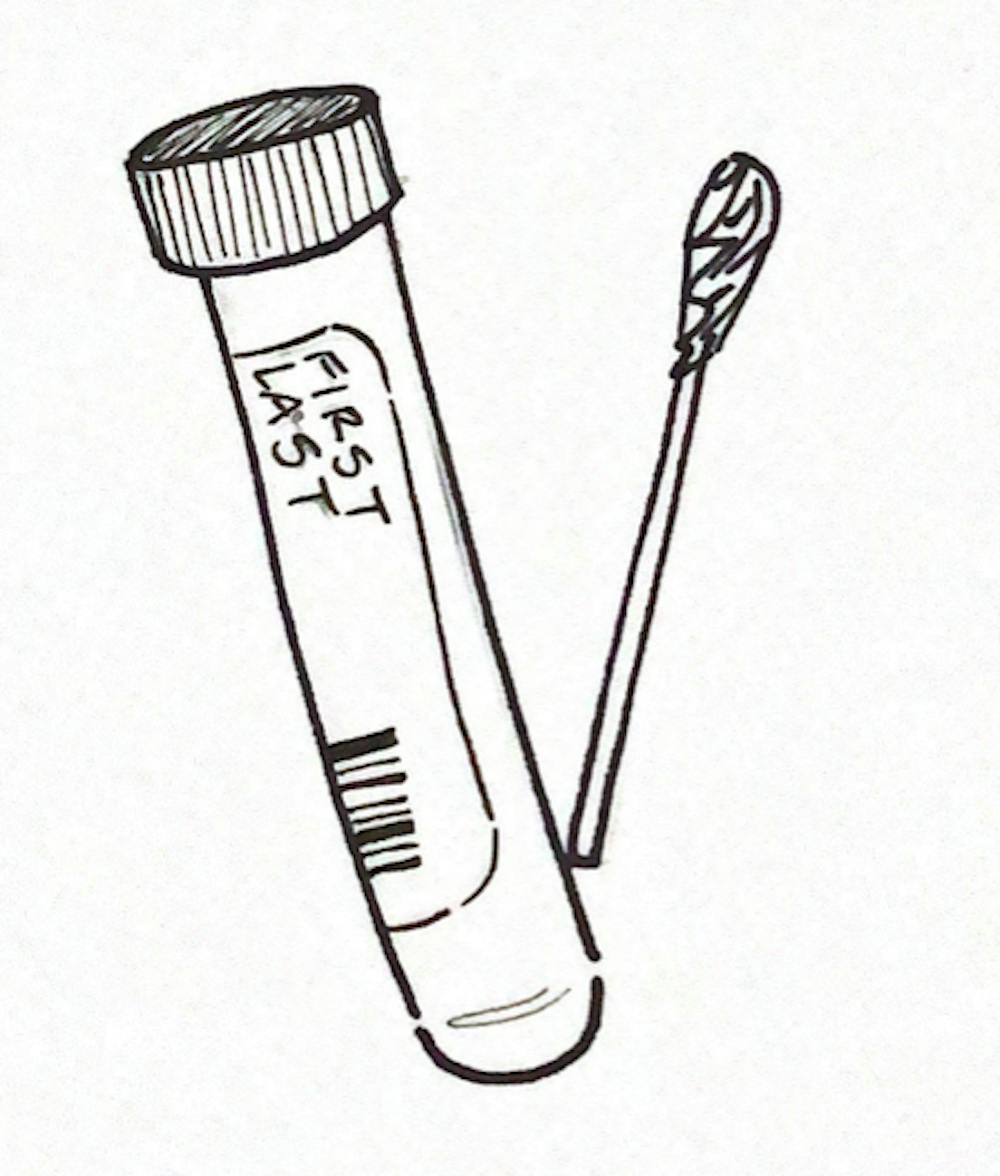The college has completed over 11,200 Covid-19 tests — more than 9,500 student tests and 1,700 employee tests — over the course of the semester.
The number of tests completed each week has fluctuated, sometimes exceeding and sometimes falling short of the goal of 750 weekly tests, according to Middlebury’s Covid-19 Reporting Dashboard.
The inconsistency resulted from differently-sized groups being identified for testing through the college’s Targeted Dynamic Testing program. The fluctuations also resulted from varying numbers of students reporting possible Covid-19 symptoms each week and the number of retests performed due to insufficient samples taken previously, Director of Media Relations Sarah Ray said in an email to the Campus.
All students were tested twice during move-in and were tested again either in late September or early October. Faculty and staff working on campus were also tested throughout the fall semester.
The total cost of testing this year could reach $750,000, according to Executive Vice President for Finance and Administration David Provost. Each test costs $25, bringing the total cost of 750 tests per week to $18,750, not including transportation or personnel costs, Provost said in an email to The Campus.
Testing costs for the semester — a contributor to the college’s anticipated deficit — were a reason for raising tuition by 3% this year, according to an Aug. 6 email from college administrators to students.
On Nov. 5, the Vermont State Legislature’s Joint Fiscal Committee approved $3.2 million in reimbursements from the CARES Act to independent colleges for the cost of Covid-19 testing through Dec. 31, 2020.
Other colleges implemented more rigorous testing schedules during the fall semester: UVM has tested all students every seven days and Colby, a smaller college in a similarly rural location, has tested all students, faculty, and staff twice every week.
According to an analysis of their respective schools’ testing plans, Middlebury is the only school in the NESCAC to use a targeted sampling program for its testing. All other NESCAC institutions, many located in similarly rural areas, have tested all students twice weekly, with the exception of Williams College (once weekly) and Amherst College (three times weekly).
The Middlebury Return to Campus Guide outlines the college’s testing procedures, including reasons why an individual might be tested outside of regular testing. The college tests individuals studying or working on campus who display symptoms that could be associated with Covid-19, as well as those who are identified as close contacts of people who have tested positive for Covid-19.
All other tests are conducted as part of the college’s Targeted Dynamic Testing, with groups distinguished as “peripheral contacts” or “positional contacts.”
Peripheral contacts are those who may have come into contact with someone who tested positive for Covid-19 but who had limited exposure with the infected person and was not identified as a close contact by the Vermont Department of Health.
Positional contact is how most students and employees at the college are grouped, with different levels depending on the kinds of in-person activities performed. High-risk employees are in testing category 1, most in-person students are in category 2, most faculty and staff are in category 3, and students not taking in-person classes or living on campus and faculty or staff working remotely are in category 4.
During the last week of in-person classes, Middlebury offered optional departure testing as students prepared to leave campus and cases around the state of Vermont spiked. On Tuesday, the college reported that two students tested positive for Covid-19. One, one additional case was reported on Wednesday bringing the total of active cases on campus to three.

Tony Sjodin ’23 is a managing editor.
He previously served as community council correspondent, senior writer, news editor and senior news editor.
Sjodin is majoring in political science with a focus on international and comparative politics. He previously held internships with the Appalachian Mountain Club's Outdoor Magazine, political campaigns in Massachusetts and Vermont, and the U.S. Embassy in Costa Rica's Environmental Hub. Outside of class, he leads kayaking and hiking trips with the Middlebury Mountain Club.




